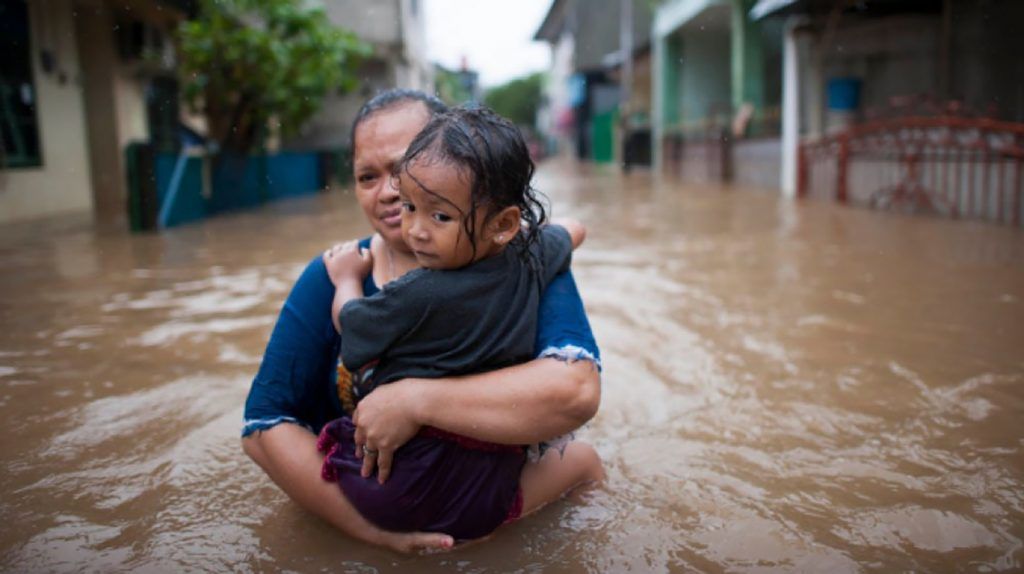New climate research suggests worse coastal flooding—sooner
By Dan Drollette Jr | October 30, 2019
 Flooding in Jakarta, Indonesia, as of February 2018. Image courtesy of World Meteorological Organization.
Flooding in Jakarta, Indonesia, as of February 2018. Image courtesy of World Meteorological Organization.
Whenever we read about sea level rise in the popular press, certain factoids and figures seem to pop up with regularity: Coastal-dwellers can expect a global average of about three feet more water by the year 2100, due to climate change.
These items are repeated so often that sea level rise seems to be the best-known of the many dangers. And the science appears pretty straightforward: As humans pollutes the atmosphere with more greenhouse gases, the planet warms. As it does so, ice sheets and glaciers melt and warming sea water expands, increasing the volume of the world’s oceans.
Case closed.
But it turns out that those are some of the most conservative figures—in other words, close to a best-case scenario. Over the rest of this century, scientists expect that average global sea levels could rise as much as seven feet, and possibly more.
And we seem unduly concerned with the year 2100 in all these reports, which is a big mistake. According to new research published by Climate Central (itself a sort of summary of what just appeared in the new peer-reviewed journal Nature Communications), within three decades chronic flooding would drive 300 million people from their land. In other words, 30 years from now, not 80.
And the damage will not be evenly distributed; the greatest effects of sea level rise will be felt in in the low-lying areas of the Asian continent and small island states. We can expect trillions of dollars in losses—or even tens of trillions—as the years go by.
The new figures are the result of an improved global elevation dataset produced by Climate Central using machine learning and reveal that coastal elevations are significantly lower than previously understood, across wide areas.
Publication Name: Climate Central
To read what we're reading, click here
Together, we make the world safer.
The Bulletin elevates expert voices above the noise. But as an independent nonprofit organization, our operations depend on the support of readers like you. Help us continue to deliver quality journalism that holds leaders accountable. Your support of our work at any level is important. In return, we promise our coverage will be understandable, influential, vigilant, solution-oriented, and fair-minded. Together we can make a difference.
Keywords: climate change, flood, flood risk assessment, sea level rise
Topics: Climate Change, What We’re Reading















How many coastal nuclear power plants will flood then explode?